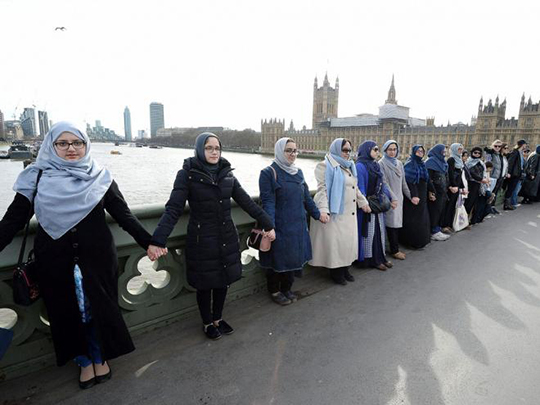London, Mar 27: A group of Muslim women formed a human chain along the iconic Westminster Bridge here in a show of solidarity with the victims of deadly terror attack outside the British Parliament that killed four people.

The women, many of whom wore blue to symbolise peace, were joined by supporters who stood in silence for five minutes when Big Ben chimed at 4 PM yesterday.
The vigil, which was organised by the Women's March on London, came after a photo of a woman wearing a hijab crossing the bridge in the aftermath of the attack went viral on social media.
"The feeling of what happened here on Wednesday was really strong. We thought of the ordinary people who were here and were mown down, standing here like this, it was very overwhelming," Fariha Khan, from Surbiton, was quoted as saying by the BBC.
It was an 'overwhelmingly' emotional experience, another said.
Another woman who was there, Sarah Waseem, said the Islam faith "totally condemns violence of any sort". "When an attack happens in London, it is an attack on me. It is an attack on all of us. This is abhorrent to us," she said.
Londoner Mary Bennett, retired healthcare worker, said she was present to make a "small gesture".
Four people died and 50 injured when lone attacker Khalid Masood rammed a car into pedestrians on the bridge, before crashing his vehicle and fatally stabbing an on-duty police officer in the grounds of Parliament. Masood was shot dead by police at the scene.





Comments
Add new comment